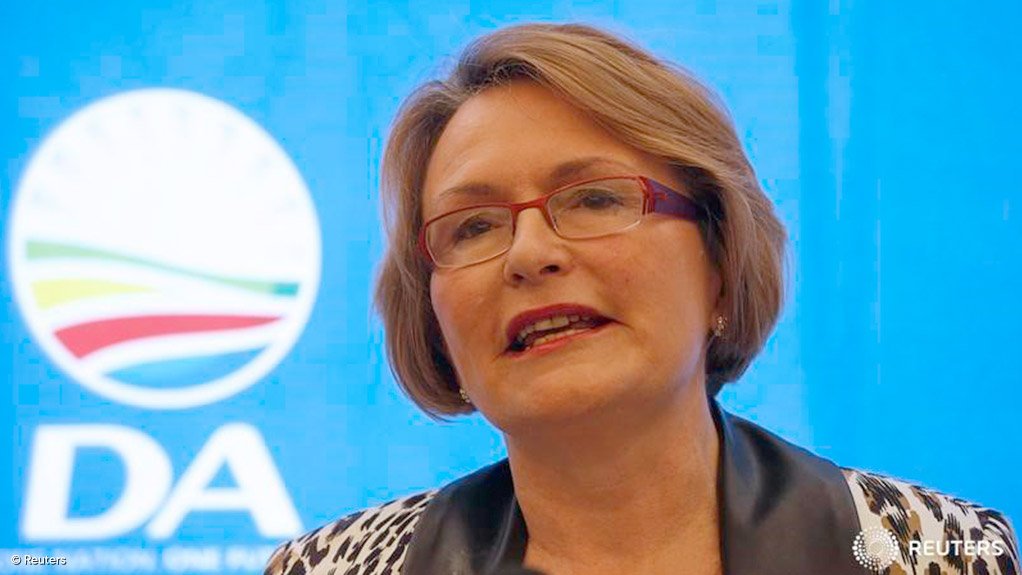Western Cape Premier Helen Zille on Monday said that she had written to President Jacob Zuma for a national disaster to be declared after the likelihood of Day Zero was confirmed by the City of Cape Town.
"After the mayor's announcement, that is where my constitutional responsibilities hit in," she said.
"The reason that I think it would be useful to declare a national state of disaster is because then everything is in place for anything that we need to do that may require us to shortcut certain systems.
"We don't want to, at the moment that we need to do those things, urgently to have to then start declaring disasters and going through processes. Let's rather get that all organised now, so that [national and provincial disaster management departments] can be working together like [they are]. The minute something has to be done, we can just get on and agree and do it."
On Monday, Zille attended a meeting at the provincial disaster management headquarters to discuss preparation for, and management of, Day Zero and its aftermath.
Issues surrounding water security; economic security, safety and security; as well as humanitarianism – taking into consideration the difficulties of the elderly and disabled collecting water at the water points – were under discussion during the closed meeting.
There was no precedent anywhere in the world for this kind of disaster, she said.
"We haven't had a dry run –you can't do that for this kind of disaster. You can't practice. A lot of things are going to be entirely unforeseen; we have to have everything in place. We can't leave a single stone unturned to ensure that cooperation can happen, that decisions can be taken very quickly and unconventionally if we need to."
'Province has a critical role to play'
Zille explained that the provision of bulk water supply was a national competency, cleaning and delivery of water to individual households and businesses was a local government competency, and that the oversight of that process at local government level was a provincial competency.
"It is really important to understand that, because you can only do what the law and Constitution specifically empower you to do.
"When it comes to disasters, and impending disasters, the province has a critical role to play. And that is why, when the mayor said that it seems as if Day Zero is now going to be unavoidable, that is when the button was switched on the machine for all systems go in the province."
Dam levels in the Western Cape are currently at 26.5%, with a slight chance of light rain forecast for the current week.
Dam levels are at a critical low, and when storage reaches 13.5%, the City will turn off most taps, leaving only vital services with access to water.
Dr Mmaphaka Tau, the deputy director-general of the national Disaster Management Centre, also attended the sessions, and had been in constant communication with the provincial office to ensure plans for the "ultimate disaster" were in place.
The panel is made up of representatives from different government departments, and with different mandates in managing the crisis.
Zille said the contingency sessions had been taking place once a week since January last year, and was not a "sudden" reaction in the countdown to Day Zero.
"This is an ongoing meeting at which plans have been made and details have been developed for many months now. Towards the end of last year, [the panel] has been meeting every single day," she said.
'Start saving water as if our lives depend on it'
The agricultural sector had cut their water use by 60%, Zille said, but Cape Town suburbia still had to "come to this particular party".
"[We need to] start saving water as if our lives depend on it, because our lives do depend on it. Everyone now has to start taking this very, very seriously.
"Augmentation programmes need to proceed as quickly as possible. Our job is to make sure that we are prepared in case Day Zero strikes, which looks much more probable now than it did before."
The City of Cape Town would be moving to level 6B water restrictions from February 1, with a new target of 50 litres of water per person per day.
The City's previous target was 87 litres per person per day, which it said only 39% of residents currently adhered to.
Zille stressed that, should all residents keep their water usage below 50 litres per person per day, a disaster could be avoided.
"The dams will turn at 15%. Day Zero will hit when the dams go down to 13.5%, so you can see how narrow the margin is.
"Of course there are augmentations schemes – from the aquifers to desalination – but that's all been added in when we did the calculation."
EMAIL THIS ARTICLE SAVE THIS ARTICLE
To subscribe email subscriptions@creamermedia.co.za or click here
To advertise email advertising@creamermedia.co.za or click here











